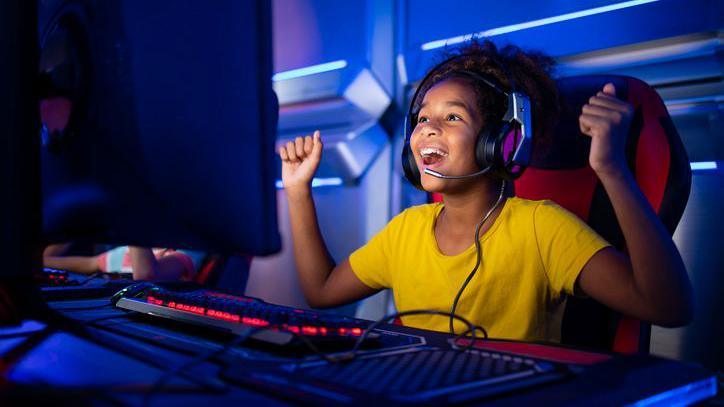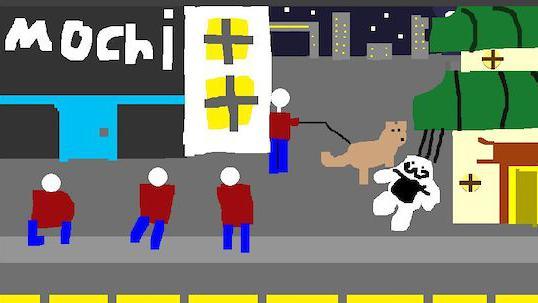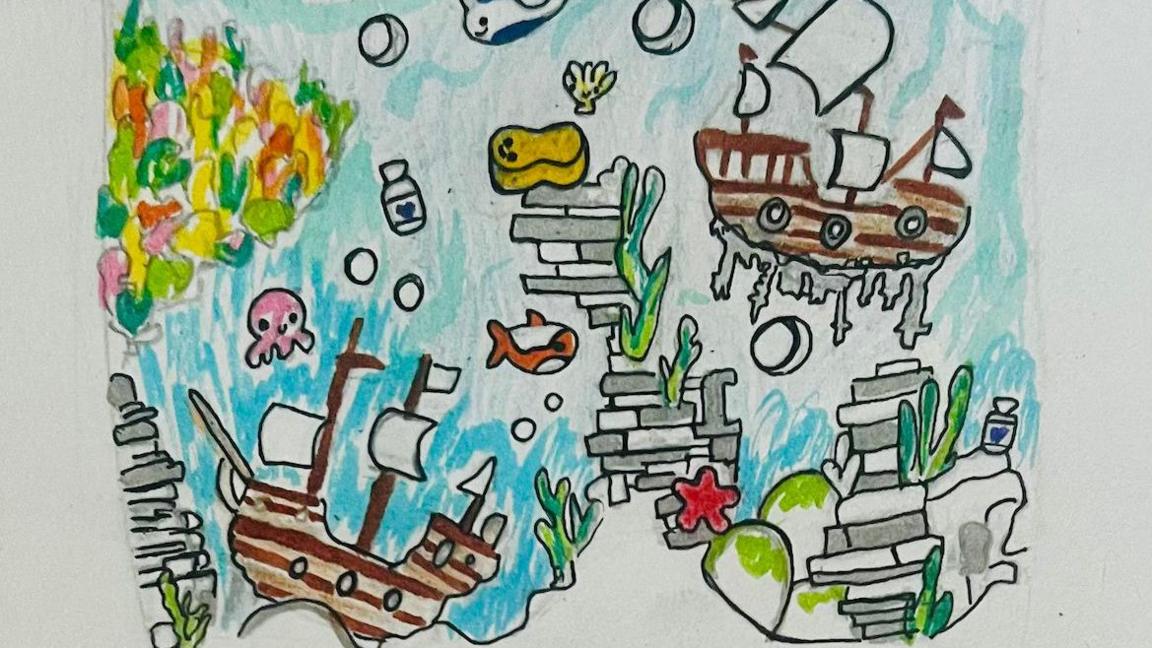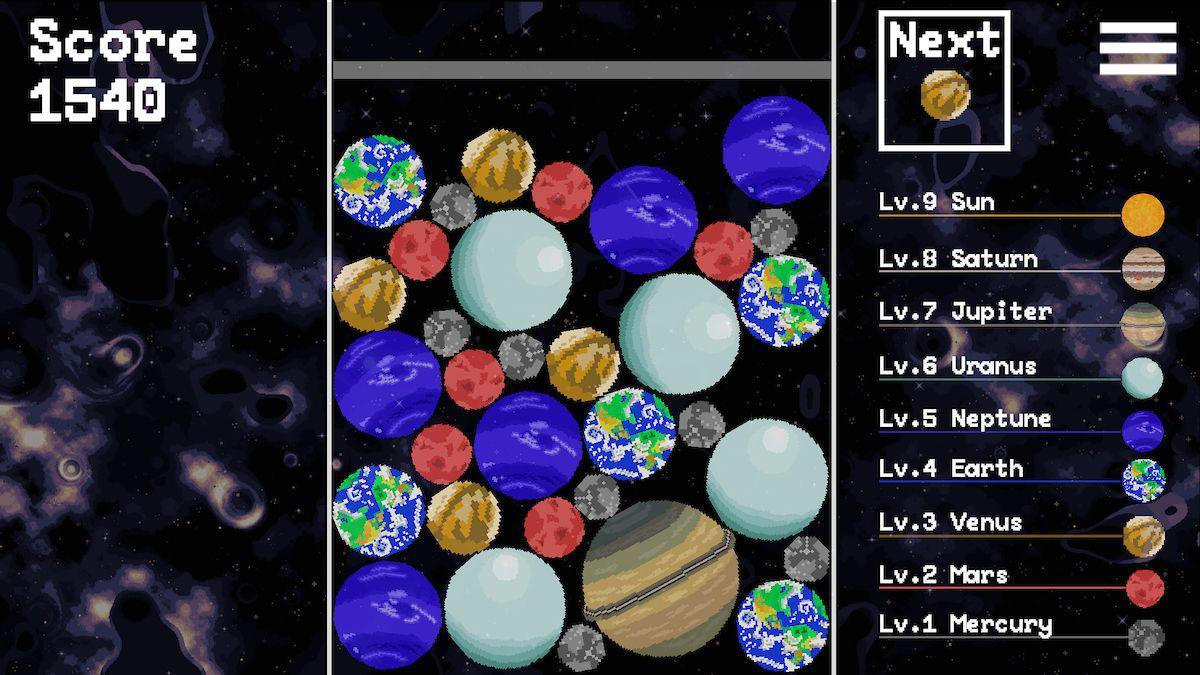Meet the young designers up for a gaming award

- Published
Bafta have unveiled the talented finalists who have been selected for this year's Young Game Designers (YGD) competition.
The event is in its 15th year and 52 young people - aged between 12 and 18 - have been chosen by top industry experts to take part.
The competition celebrates and encourages young people to create, develop and present their ideas for games.
The winners ceremony will be live-streamed on Bafta's YouTube channel, on Wednesday 18 June.
More like this
Chat: Should devices in bedrooms be banned?
- Published11 April
Astro Bot wins big at Bafta Games Awards
- Published9 April
How does the Young Game Designers award work?

Oscar has been nominated in the 10-14-year-old Game Making category for his Japanese learning game 'Blossom'
The awards are split into two categories - the Game Concept Award, for a written idea for a new game, and the Game Making Award, for a game made using computer software.
There are two awards available for each category, for young people aged 10 to 14 and another for those aged between 15 to 18.
The winners are chosen by a jury of industry professionals who are looking for well thought-out game ideas and impressive use of coding.

In the 10-14 Game Concept Category, 12-year-old Arabelle is among the nominees.
Her game, titled Reef Revival, involves players helping a character - called Spongy - rediscover his home after a terrible storm.
He needs to collect valuable items on the way to revive the coral that surrounds him.
Arabelle says that she was inspired by the environment, and that she wanted to make the game "fun and exciting, while teaching the importance of protecting marine life".

A screenshot of the Planet Drop game
Meanwhile in the 10-14 Game Making Category, Daniel's space themed adventure is one of the shortlisted games.
His game called 'Planet Drop' is all about creating the ultimate galaxy.
Players drop planets to merge them into ever bigger celestial bodies, trying to create a supermassive blackhole.
Identical planets combine to form new planets, and players need to make their drops in the right places to ensure they don't block themselves.
The winning games will be displayed at the Power Up exhibition at the Science Museum in London, the Science and Industry Museum in Manchester and at the National Science and Media Museum in Bradford in June.
